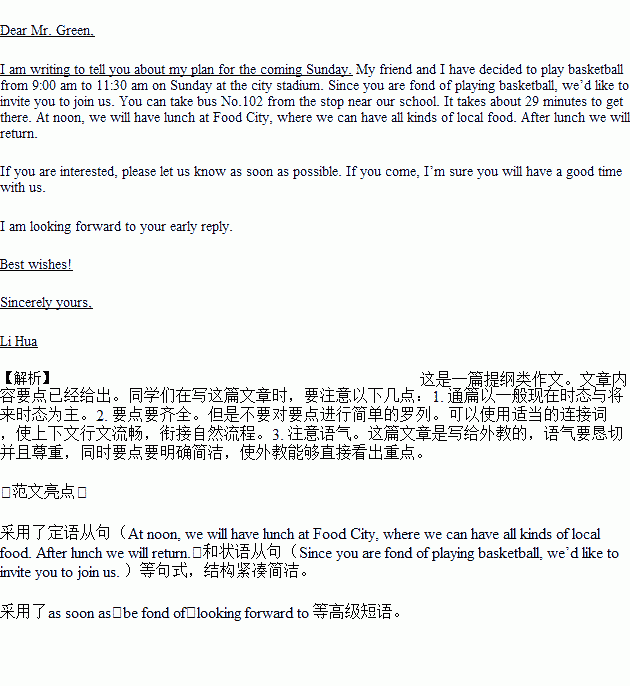ΧβΡΩΡΎ»ί
ΦΌ…ηΡψΫ–άνΜΣΘ§ΡψΚΆ≈σ”―Ο«‘ΦΕ®±Ψ÷ή»’…œΈγ»ΞΧε”ΐ≥Γ¥ράΚ«ρΘ§ΆβΫΧMr. Green Ζ«≥Θœ≤ΜΕΧε”ΐΜνΕ·Θ§«κΡψΗχΥϊ–¥ΖβΒγΉ”” Φΰ―ϊ«κΥϊΦ”»κΡψΟ«ΒΡΜνΕ·ΓΘΡψΒΡe-mail”ΠΗΟΑϋά®œ¬Ν–“ΣΒψΘΚ
1. ¥ράΚ«ρΒΡ ±ΦδΚΆΒΊΒψ
2. ¥”―ß–ΘΒΫΧε”ΐ≥ΓΒΡΖΫ Ϋ
3. ΈγΖΙΚΆœ¬ΈγΜνΕ·Α≤≈≈
4. œΘΆϊΨΓ‘γΜΊΗ¥
ΉΔ“βΘΚ
1. ¥ ΐ100Ήσ”“ΓΘ
2. Ω…“‘ Β±‘ωΦ”œΗΫΎΘ§“‘ Ι––ΈΡΝ§ΙαΓΘ
3. ΩΣΆΖ”ο“―Ψ≠ΈΣΡψ–¥ΚΟΘ§≤ΜΦΤ»κΉή¥ ΐΓΘ
____________________________________________________________________________________________
____________________________________________________________________________________________
____________________________________________________________________________________________
____________________________________________________________________________________________
____________________________________________________________________________________________
____________________________________________________________________________________________
____________________________________________________________________________________________
______________________________________________________________________
 ΚΘΒμΜΤΗ‘Οϊ ΠΒΦΚΫœΒΝ–¥πΑΗ
ΚΘΒμΜΤΗ‘Οϊ ΠΒΦΚΫœΒΝ–¥πΑΗ Τ’Ά®ΗΏ÷–Ά§≤ΫΝΖœΑ≤αœΒΝ–¥πΑΗ
Τ’Ά®ΗΏ÷–Ά§≤ΫΝΖœΑ≤αœΒΝ–¥πΑΗ
